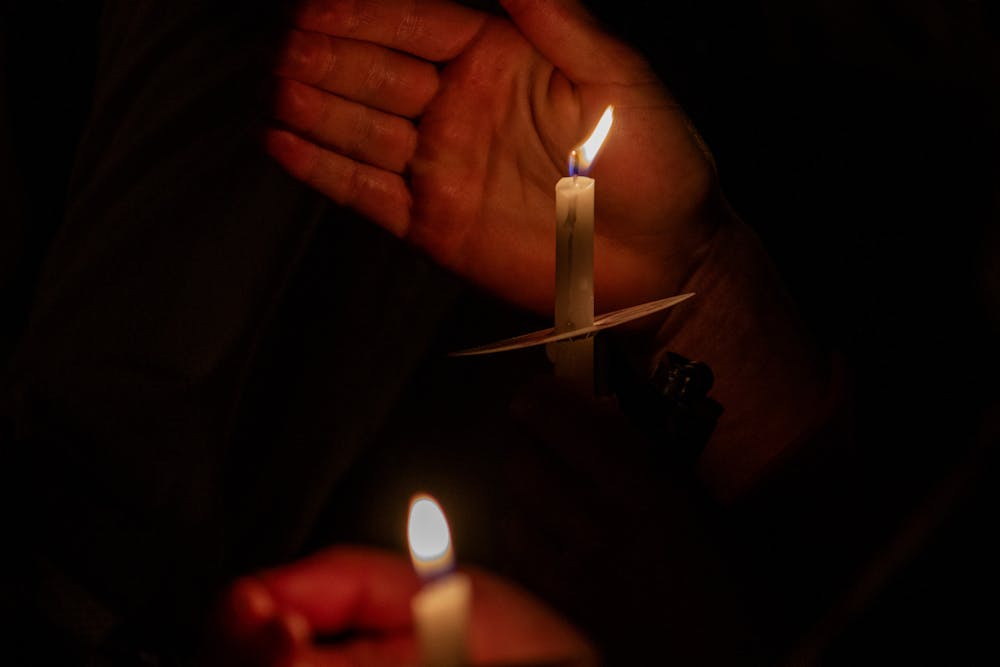Eric Bachman died on Oct. 31, 2024. I was informed by our shared professor on Nov. 1, 2024. I was told at the same time as my peers in the class.
That day, I reached out to my friends, people who knew Eric and were unaware of his passing. I didn’t want them to have the same experience I had. Moments after learning I had lost my best friend, I shared the news with my partner. After my partner arranged for absences that day, he got an email from his linguistics professor, Virginia Dawson.
“I haven’t heard anything, but I assume I will through official channels soon,” the email read.
Naturally, I thought the same. Surely, the university would say something. Eric was an active member of many clubs and programs throughout campus, such as the French and tennis club and WWU Racing. Many peers and friends would feel the effect of this loss.
But three days passed. Then, a week, two weeks and now, a month – all without acknowledgment from university communications.
I began hearing stories from other Eric’s community members about how they found out. Those who knew him through his majors, French and journalism, found out in department-wide announcements. His employer, WWU Dining, received an official announcement from the school. Everyone else in Eric’s community learned of his death through word-of-mouth conversations or various news articles.
“I went and looked at the Bellingham Herald, and that's the only information I found,” Dawson said in an interview. “A 20-year-old had died in a motorcycle accident. They didn't mention that he was a Western student in the article, but I could deduce.”
I counted myself lucky that I found out how and when I did but as I heard these stories from others, one question kept running through my mind.
Why hasn’t the university said anything?
Due to the Clery Act, college campuses must collect and report all instances of crime that occur on campus. When an incident occurs off campus, legally, a university does not have to inform the student population of the incident. Schools still may inform students of off-campus incidents.
At Western Washington University, they often don’t.
“For off-campus incidents involving a student that fall outside the Clery geography and which do not pose a safety concern for the campus community, the university will generally not issue a broad communication to all students,” said Jonathan Higgins, director of University Communications. “This is our standard practice rather than outlined in formal policy.”
There is no written policy dictating whether the university has to release an announcement of an off-campus student death.
In the case of Eric’s accident and death, because it was off campus, Western legally did not have to notify students, faculty or staff.
Whether the university has an ethical obligation to inform the campus is another story.
Mia Foos, a fourth year, didn’t know Eric, but she was informed of his death through her partner.
“The school has sent out information about another student's death. So, why is this one different?” Foos said. “Even stabbings and shootings have occurred outside campus, a few blocks down, are still sent out to students, so I don't know why this one wasn't sent out to other people as well.”
Another factor in reporting off-campus incidents is the wishes of the families of those involved.
The university works closely with families, honoring their wishes and trying to be as supportive as possible in times of immense grief, according to Higgins.
Western has released campus-wide communication for off-campus deaths in the past. However, it was only in specific scenarios. Western student Dwight Clark went missing in 2010 for two weeks before it was discovered he had passed in an accidental drowning. Because this placed students on edge, the university released an announcement.
In the case of Eric’s death, it’s unclear what his family’s exact wishes were due to his parents’ divorce.
According to Eric’s mother, Christina Liere, she was never contacted by any school official following his death. She hypothesized that it’s likely Eric’s father was listed on official school paperwork, therefore he could’ve been notified by the school, while she wasn’t.
Liere learned of her son’s passing on the evening of Nov. 1, 2024, through a call from Eric’s mechanic. I learned about her son’s death before she did.
According to Higgins, it was law enforcement’s duty to inform the parents.
When Liere finally did speak with the university, it was to reach out to Michael Sledge, the executive director of Student Life, to plan Eric’s memorial and vigil on campus, which took place on Nov. 7, 2024.
It took me two weeks to realize the university had no plan to release a campus-wide announcement of Eric’s death. I was angry. Every student on this campus is important. When a member of the community is lost, everyone feels it, and Eric shouldn’t be the exception.
To my surprise, others agreed.
“A member of our community died, and I view all the students here as our community, not just the linguistics students,” Dawson said. “It's good for the people who are grieving to have a space to talk about it, not just sweep it under the rug.”
Western should not be picking and choosing what events and what tragedies they share with this community. When the community is left uninformed, it serves us an injustice by not giving people the space, time or resources to grieve any loss, whether we knew them personally or not.
Julia Hawkins (she/her) is a opinions reporter for The Front this quarter. She is a fourth-year journalism/public relations major. Outside of reporting, Julia enjoys hanging out in The Planet office, baking and asking random people to pet their dogs. You can reach her at juliahawkins.thefront@gmail.com.






